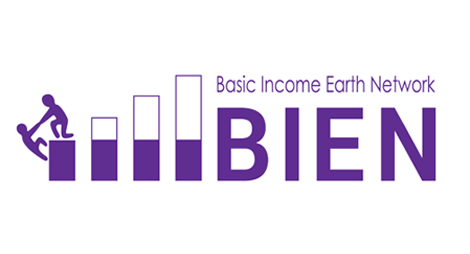Universal basic income is still a long way off, but it’s growing more plausible thanks to the work of advocacy groups like the Basic Income Earth Network. The group is entirely volunteer-driven, and has a range of positions available for people who would like to offer their time. Check out their volunteer opportunities if you’d like to work to make basic income a reality in your area.
Category: Economy
Article of the day: what if we just gave everyone money?
The persistence of poverty in the US suggests that the social safety net isn’t performing as well as one might hope. A new solution which has slowly been gaining acceptance is the idea of a universal basic income — a guaranteed monthly grant to every citizen in the country. FiveThirtyEight offers a useful history of the idea, and some of the major advantages and challenges it would bring.
The economic uncertainty surrounding basic income is huge, and the politics of bringing such a program about on a large scale are daunting. But something makes this radical proposal so exciting that people and governments are increasingly willing to try it. Basic income challenges our notions of the social safety net, the relationship between work and income, and how to adapt to technological change. That makes it one of the most audacious social policy experiments in modern history. It could fail disastrously, or it could change everything for the better.
Action of the day: do a deep dive into poverty research with these think tanks
If you’d like to learn more about poverty in the US, there are a number of excellent think tanks working on this issue. Check out publications from the National Center for Children in Poverty, the Institute for Research on Poverty, and the Center for Poverty Research.
Article of the day: the federal poverty line is stuck in the 1960s
One problem with estimates of the poverty rate in the US is that the federal poverty line is arguably too low. In 2013, a family of two with an income of $15,511 was officially over the poverty line, even though virtually no one would be able to meet all their basic needs on that amount. Moyers & Company has a good explanation of how the federal poverty line is calculated, and how it hasn’t been updated to account for changes in technology and family structures since the 1960s. As they write,
“In some ways, the poverty measure such as it is today made a lot of sense in 1965, 1966, in the late ’60s. The problem is we haven’t really updated it in a meaningful way,” says Shawn Fremstad, a senior research associate at the Center for Economic Policy Research. “We’ve updated it for inflation, but that just means you’re measuring what it means to be poor today in what are essentially early 1960s terms.”
Article of the day: busting America’s poverty myths
While the US has (nearly) eradicated extreme poverty, many people still live without enough income to consistently meet their basic needs. Over the next several days, we’ll feature a series of articles about poverty in the US, and the organizations working to develop innovative anti-poverty policies. A good place to start is with WNYC’s series of shows exploring myths about American poverty. They dispel some common assumptions about poverty, including the ideas that poor people are lazy and that the “deserving” poor can easily access social safety nets.
Action of the day: take the Trump Relief Pledge
If you think you might end up paying lower taxes under Trump, sign up to take the Trump Relief Pledge. As the pledge’s creators write,
Donald Trump won the presidency in part due to his pledge to cut taxes. To pay for those tax cuts, he plans to reduce funding for environmental protection, education, science, clean energy research, social services, and more. We recognize that taxes are the price we pay to live in a society that protects and provides for all its people. We do not want tax cuts at the cost of progress, opportunity, and basic services. As a result we have written and taken the Trump Relief Pledge. It states: I pledge to donate the tax breaks I receive from Trump’s policies—including income tax reduction, estate tax reduction, and capital gains tax reduction—to a worthy cause that will continue funding progress in our country.
Article of the day: Trump plans to increase taxes on single parents
According to Politifact, Trump’s proposed tax plan would result in an tax increase for 51% of single parents. The plan would reduce childcare deductions, require single parents to file as individuals rather than heads of households, and increase the lowest tax bracket from 10% to 12%. All of this adds up to higher taxes for economically vulnerable families.
A single parent with an income of $75,000 and two school-age children would see his or her taxes increase by $2,440 or by $1,640 if the family had child care costs that could be deducted under Trump’s plan… Similarly, a single parent making $50,000 and who had three children would face an increase of $1,188.
Article of the day: Jesse Jackson on the need for working class solidarity
Article of the day: five essential books on American politics by women
Following up on yesterday’s article, here are five excellent books on contemporary American politics by women. If you purchase any of these through the Amazon Affiliate links below, all the proceeds will be donated to the ACLU.
- The New Jim Crow: Mass Incarceration in the Age of Colorblindness. Michelle Alexander’s book has been widely recommended in the age of Black Lives Matter, and for very good reason. A well-written, compelling analysis of the ways in which our penal system routinely violates the civil rights of millions.
- $2 a Day: Living on Almost Nothing in America. Kathryn Edin and H. Luke Schaefer made a surprising discovery as they wrote this book: more than 1.5 million Americans of all races, ages and genders live with nearly no cash income. The book covers their diverse survival strategies, and the pervasive shortcomings of the welfare system.
- The First Civil Right: How Liberals Built Prison America. Naomi Murakawa’s work provides a useful complement to The New Jim Crow. She traces the roots of the contemporary penal system to WWII-era attempts to protect the rights of minorities by expanding the government’s policing capacities — powers which would later be used as tools of control over the same groups.
- Hiding from Humanity: Disgust, Shame and the Law. Martha Nussbaum writes eloquently about the philosophical roots of attempts to regulate sexual behavior through the law. A useful analysis of “moral” arguments against queer rights.
- The Transformation of American Politics: Activist Government and the Rise of Conservatism. Paul Pierson and Theda Skocpol have edited a useful essay collection on the apparent paradox of post-1960s politics: the scope of government activities has increased steadily, even as conservative leaders have ever more vocally pronounced their commitment to small government.
Article of the day: five books to change conservative minds
Cass Sunstein at Bloomberg has suggested a list of five well-argued books that might shift conservative opinion on a variety of social issues. As he notes,
After reading these books, conservatives are hardly likely to rush out and volunteer to work for the Democratic Party. But they will end up a lot more humble. They’ll also have a far better understanding of why so many of their fellow citizens disagree with them — and on one or two issues, they might even change their minds.
One shortcoming of the list is that all of the authors are men, and most are white. I’ll feature some essential reading by women and people of color over the coming days.










